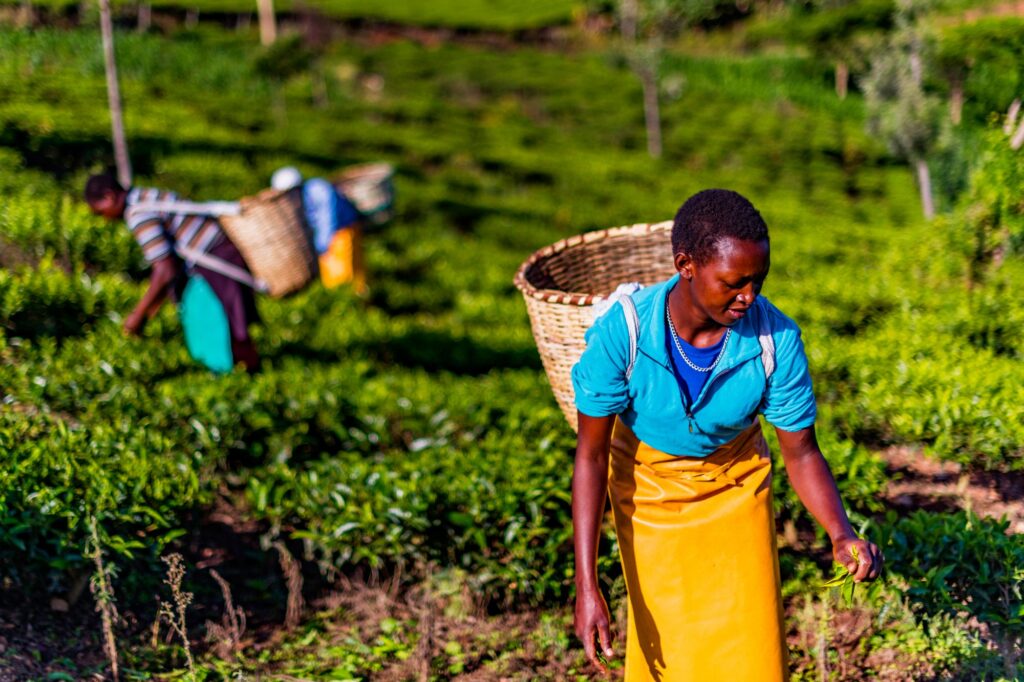
The African continent is home to a diverse and vibrant tea culture, with each region offering a unique set of flavors and traditions. From the rolling hills of Kenya to the lush plateaus of Malawi, the tea industry in Africa has been a vital part of the local economies and cultural heritage for centuries. This article will take you on a journey through the captivating world of African tea, exploring the top tea-producing regions and uncovering the hidden gems that await tea enthusiasts.
The History and Cultural Significance of African Tea
The history of tea in Africa can be traced back to the early 19th century, when the first tea plants were introduced to the continent. Over time, the tea industry has become deeply intertwined with the cultural fabric of many African nations, playing a significant role in shaping local economies, traditions, and even social dynamics. African tea holds a special place in the hearts of its people, with tea ceremonies and rituals serving as a means of fostering community, sharing stories, and celebrating the rich heritage of the region.
The Top African Tea Regions and Their Unique Flavors
Africa is home to several renowned tea-producing regions, each with its own distinct characteristics and flavor profiles. Here are some of the top African tea regions and the unique qualities they offer:
- Kenya:
- Known for its robust, full-bodied black teas with a bright, coppery color and a distinct, slightly sweet flavor.
- Renowned for its high-quality, single-origin teas, often grown at high altitudes.
- The Kenyan tea industry is one of the largest in the world, contributing significantly to the country’s economy.
- Malawi:
- Produces a wide range of teas, including black, green, and specialty teas.
- Malawian teas are known for their delicate, fragrant, and slightly floral notes.
- The tea industry in Malawi has played a crucial role in the country’s economic development and social welfare.
- Rwanda:
- Emerging as a hidden gem in the African tea landscape, Rwanda is gaining recognition for its exceptional quality teas.
- Rwandan teas often exhibit a complex, nuanced flavor profile, with notes of stone fruits, honey, and a hint of spice.
- The country’s tea industry is undergoing a renaissance, with a focus on sustainable and ethical practices.
- Ethiopia:
- Ethiopia is considered the birthplace of coffee, but it also has a rich tea-growing tradition.
- Ethiopian teas are known for their unique, earthy, and sometimes slightly smoky flavors.
- The tea-growing regions of Ethiopia are often located in remote, mountainous areas, adding to the mystique and exclusivity of the teas.
Exploring the Tea Plantations of Kenya
Kenya is undoubtedly one of the most prominent tea-producing countries in Africa, with a thriving industry that contributes significantly to the nation’s economy. The tea plantations of Kenya are a sight to behold, with their lush, emerald-green expanses stretching across the rolling hills and valleys. Visitors to these plantations can immerse themselves in the rich history and traditions of Kenyan tea, learning about the meticulous cultivation and processing techniques that give the teas their distinctive character.
Unveiling the Hidden Gems of Malawi’s Tea Industry
While Malawi may not be as well-known as its Kenyan counterpart, the country’s tea industry is a hidden gem waiting to be discovered. Malawian tea plantations are nestled among the picturesque highlands, where the cool, temperate climate and fertile soil create the perfect conditions for producing exceptional teas. Visitors can explore these plantations, witness the intricate harvesting and processing methods, and savor the delicate, floral notes that define Malawian tea.
The Distinct Flavors of Rwandan Tea
Rwanda’s tea industry has been experiencing a remarkable renaissance in recent years, with a growing focus on quality and sustainability. The country’s tea-growing regions, often located at high altitudes, produce teas with a distinct, complex flavor profile that sets them apart from other African teas. Exploring the tea plantations of Rwanda offers a unique opportunity to witness the care and attention that goes into cultivating these exceptional teas, which are gaining recognition on the global stage.
Discovering the Lesser-Known Tea Regions of Ethiopia
While Ethiopia is renowned for its world-class coffee, the country’s tea-growing regions are often overlooked. However, these hidden gems are well worth exploring, as they offer a unique and captivating tea experience. From the remote, mountainous areas to the lush, verdant valleys, the tea plantations of Ethiopia showcase a diverse range of flavors, from earthy and robust to delicate and floral. Discovering these lesser-known tea regions can be a true adventure for the discerning tea enthusiast.
Tips for Brewing and Enjoying African Tea
Brewing the perfect cup of African tea requires a bit of attention and care. Here are some tips to help you unlock the full potential of these exceptional teas:
- Water Temperature: African teas, particularly black and oolong varieties, thrive in water that is slightly cooler than boiling, around 195°F (91°C) to 205°F (96°C).
- Steeping Time: Depending on the tea type, the optimal steeping time can range from 3 to 5 minutes, allowing the flavors to fully develop.
- Brewing Vessel: Consider using a traditional teapot or a gaiwan (a Chinese tea brewing vessel) to enhance the tea-drinking experience.
- Explore Diverse Brewing Methods: Experiment with different brewing techniques, such as the Western-style infusion or the more intricate Eastern-inspired gongfu method, to discover your preferred approach.
- Appreciate the Terroir: Pay attention to the unique characteristics of each African tea region, as the terroir (the environmental factors that influence the flavor) can greatly impact the final taste.
Where to Buy African Tea and Supporting Local Communities
Sourcing high-quality African tea can be a rewarding experience, as it allows you to support local producers and communities. Look for reputable online retailers or specialty tea shops that offer a wide selection of African teas, and be sure to inquire about the sourcing and ethical practices of the suppliers. By purchasing African tea directly from the producers or through fair-trade channels, you can contribute to the sustainability and growth of the local tea industry, empowering the communities that have cultivated these exceptional teas for generations.
Embracing the Diversity of African Tea Regions
The tea regions of Africa offer a captivating and diverse array of flavors, each with its own unique history, traditions, and cultural significance. From the robust black teas of Kenya to the delicate, floral notes of Malawian tea, and the complex, nuanced profiles of Rwandan and Ethiopian teas, the African continent is a treasure trove of tea exploration. By embracing the diversity of these tea regions and supporting the local communities that cultivate them, tea enthusiasts can embark on a truly enriching and meaningful journey, discovering the hidden gems that make African tea so exceptional.






